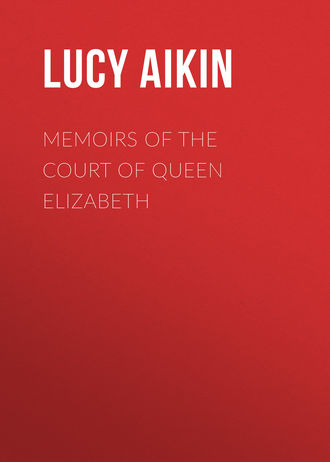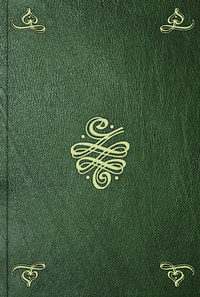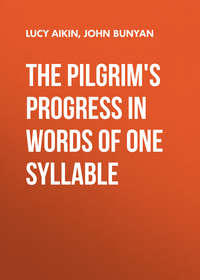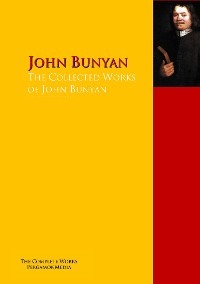 полная версия
полная версияMemoirs of the Court of Queen Elizabeth
It is recorded of Raleigh during the early days of his court attendance, when a few handsome suits of clothes formed almost the sum total of his worldly wealth, that as he was accompanying the queen in one of her daily walks,—during which she was fond of giving audience, because she imagined that the open air produced a favorable effect on her complexion,—she arrived at a miry spot, and stood in perplexity how to pass. With an adroit presence of mind, the courtier pulled off his rich plush cloak and threw it on the ground to serve her for a footcloth. She accepted with pleasure an attention which flattered her, and it was afterwards quaintly said that the spoiling of a cloak had gained him many good suits.
It was in Ireland too that Edmund Spenser, one of our first genuine poets, whose rich and melodious strains will find delighted audience as long as inexhaustible fertility of invention, truth, fluency and vivacity of description, copious learning, and a pure, amiable and heart-ennobling morality shall be prized among the students of English verse, was now tuning his enchanting lyre; and the ear of Raleigh was the first to catch its strains. This eminent person was probably of obscure parentage and slender means, for it was as a sizer, the lowest order of students, that he was entered at Cambridge; but that his humble merit early attracted the notice of men of learning and virtue is apparent from his intimacy with Stubbs, already commemorated, and from his friendship with that noted literary character Gabriel Hervey, by whom he was introduced to the acquaintance of Philip Sidney. His leaning towards puritanical principles, clearly manifested by various passages in the Shepherd's Calendar, had probably betrayed itself to his superiors at the university, by his choice of associates, or other circumstances, previously to the publication of that piece; and possibly might have some share in the disappointment of his hopes of a fellowship which occurred in 1576. Quitting college on this occurrence, he retired for some time into the north of England; but the friendship of Sidney drew him again from his solitude, and it was at Penshurst that he composed much of his Shepherd's Calendar, published in 1579 under the signature of Immerito, and dedicated to this generous patron of his muse. The earl of Leicester, probably at his nephew's request, sent Spenser the same year on some commission to France; and in the next he obtained the post of secretary to lord Grey, and attended him to Ireland.
Though the child of fancy and the muse, Spenser now showed that business was not "the contradiction of his fate;" he drew up an excellent discourse on the state of Ireland, still read and valued, and received as his reward the Grant of a considerable tract of land out of the forfeited Desmond estates, and of the castle of Kilcolman, which henceforth became his residence, and where he had soon the satisfaction of receiving a first visit from Raleigh. Both pupils of classical antiquity, both poets and aspirants after immortal fame, they met in this land of ignorance and barbarity as brothers; and so strong was the impression made on the mind of Raleigh, that even on becoming a successful courtier he dismissed not from his memory or his affection the tuneful shepherd whom he had left behind tending his flocks "under the foot of Mole, that mountain hoar." He spoke of him to the queen with all the enthusiasm of kindred genius; obtained for him some favors, or promises of favors; and on a second visit which he made to Ireland, probably for the purpose of inspecting the large grants which he had himself obtained, he dragged his friend from his obscure retreat, carried him over with him to England, and hastened to initiate him in those arts of pushing a fortune at court which with himself had succeeded so prosperously. But bitterly did the disappointed poet learn to deprecate the mistaken kindness which had taught him to exchange leisure and independence, though in a solitude so barbarous and remote, for the servility, the intrigues and the treacheries of this heart-sickening scene. He put upon lasting record his grief and his repentance, in a few lines of energetic warning to the inexperienced in the ways of courts, and hastened back to earn in obscurity his title to immortal fame by the composition of the Faery Queen. This great work appeared in 1589, with a preface addressed to Raleigh and a considerable apparatus of recommendatory poems; one of which, a sonnet of great elegance, is marked with initials which assign it to the same patronizing friend.
The proceedings of the administration against papists accused of treasonable designs or practices, began about this time to excite considerable perturbation in the public mind; for though circumstances were brought to light which seemed to justify in some degree the worst suspicions entertained of this faction, a system of conduct on the part of the government also became apparent which no true Englishman could without indignation and horror contemplate. The earl of Leicester, besides partaking with the other confidential advisers of her majesty in the blame attached to the general character of the measures now pursued, lay under the popular imputation of making these acts of power subservient, in many atrocious instances, to his private purposes of rapacity or vengeance, and a cloud of odium was raised against him which the breath of his indulgent sovereign was in vain exerted to disperse.
There was in Warwickshire a catholic gentleman named Somerville, a person of violent temper and somewhat disordered in mind, who had been worked up, by the instigations of one Hall his confessor, to such a pitch of fanatical phrensy, that he set out for London with the fixed purpose of killing the queen; but falling furiously upon some of her protestant subjects by the way, he was apprehended, and readily confessed the object of his journey. Being closely questioned, perhaps with torture, he is said to have dropped something which touched Mr. Arden his father-in-law; and Hall on examination positively declared that this gentleman had been made privy to the bloody purpose of Somerville. On this bare assertion of the priest, unconfirmed, as appears, by any collateral evidence, Arden was indicted, found guilty, and underwent the whole sentence of the law. It happened to be publicly known that Arden was the personal enemy of Leicester, for he had refused to wear his livery;—a base kind of homage which was paid him without scruple, as it seems, by other neighbouring gentlemen;—and he was also in the habit of reproaching him with the murder of his first wife. The wife also of Arden was the sister of sir Nicholas Throgmorton, whom Leicester was vulgarly supposed to have poisoned, and of the chief justice of Chester lately displaced. When therefore, in addition to these circumstances of suspicion, it was further observed that Somerville, instead of being produced to deny or confirm on the scaffold the evidence which he was said to have given against Arden, died strangled in prison, by his own hand as was affirmed;—when it was seen that Hall, who was confessedly the instigator of the whole, and further obnoxious to the laws as a catholic priest, was quietly sent out of the kingdom by Leicester's means, in spite of the opposition of sir Christopher Hatton;—and finally, when it appeared that the forfeited lands of Arden went to enrich a creature of the same great man,—this victim of law was regarded as a martyr, and it was found impossible to tie up the tongues of men from crying shame and vengeance on his cruel and insidious destroyer.
The plot thickened when Francis Throgmorton, son of the degraded judge of Chester, was next singled out. Some intercepted letters to the queen of Scots formed the first ground of this gentleman's arrest; but being carried to the Tower, he was there racked to extort further discoveries, and lord Paget and Charles Arundel, a courtier, quitted the kingdom in haste as soon as they knew him to be in custody. After this many of the leading catholics fell into suspicion, particularly the earls of Northumberland and Arundel, who were ordered to confine themselves to their houses; lord William Howard, brother to the latter nobleman, and his uncle lord Henry Howard, were likewise subjected to several long and rigorous examinations, but were dismissed at length on full proof of their perfect innocence. The confessions of Throgmorton further implicated the Spanish ambassador; who replied in so high a tone to the representations made him on the subject, that her majesty commanded him to quit the kingdom.
Francis Throgmorton was condemned, and suffered as a traitor, and, it is probable, not undeservedly: there was reason also to believe that a dangerous activity was exercised by the queen of Scots and her agents, and that the letters which she was continually finding means of conveying not only to the heads of the popish party, but to all whose connexions led her to imagine them in any degree favorable to the cause, had shaken the allegiance of numbers. On the other hand, the catholics complained, and certainly not without reason, of dark and detestable means employed by the ministry to betray and ensnare them.
Counterfeited letters, it seems, were often addressed to gentlemen of this persuasion, purporting to come either from the queen of Scots or from certain English exiles, and soliciting concurrence in some scheme for her deliverance, or some design against the government. If the unwary receivers either answered the letters, or simply forbore to deliver them up to the secretary of state, their houses were entered; search was made for these papers by the emissaries of government, who were themselves the fabricators of them; the unfortunate owners were dragged to prison as suspected persons; and interrogated, and perhaps tortured, till they discovered all that they knew of the secrets of the party. Spies were planted upon them, every unguarded word was caught up and interpreted in the worst sense, and false or frivolous accusations were greedily entertained.
Walsingham, next to Leicester, bore the chief odium of these proceedings; but to him no corrupt motives or private ends ever appear to have been imputed in particular cases, though an anxiety to preserve his place, and to recommend himself to the queen his mistress by an extraordinary manifestation of care for her safety and zeal in her service, may not unfairly be supposed to have influenced the general character of his policy.
The loud complaints of the catholics had excited so strong and so widely diffused a sentiment of compassion for them and indignation against their oppressors, that it was judged expedient to publish an apology for the measures of government, written either by lord Burleigh himself or under his direction, which bore the title of "A declaration of the favorable dealing of her majesty's commissioners appointed for the examination of certain traitors, and of tortures unjustly reported to be done upon them for matters of religion."
It thus begins: "Good reader, although her majesty's most mild and gracious government be sufficient to defend itself against those most slanderous reports of heathenish and unnatural tyranny and cruel tortures pretended to have been exercised upon certain traitors who lately suffered for their treason, and others; as well as spread abroad by rungates, Jesuits, and seminary men in their seditious books, letters and libels, in foreign countries and princes courts, as also intimated into the hearts of some of our own countrymen and her majesty's subjects.... I have conferred with a very honest gentleman whom I knew to have good and sufficient means to deliver the truth." &c. And the following are the heads of this "honest gentleman's" testimony. "It is affirmed for truth, and is offered upon due examination to be proved," "that the forms of torture in their severity or rigor of execution have not been such as is slanderously represented"… "that even the principal offender Campion himself"… "before the conference had with him by learned men in the Tower, wherein he was charitably used, was never so racked but that he was presently able to walk and to write, and did presently write and subscribe all his confessions." That Briant, a man said to, have been reduced to such extremities of hunger and thirst in prison, that he ate the clay out of the walls and drank the droppings of the roof, was kept in that state by his own fault; for certain treasonable writings being found upon him, he was required to give a specimen of his handwriting; which refusing, he was told he should have no food till he wrote for what he wanted, and after fasting nearly two days and nights he complied. Also, that both with respect to these two and others, it might be affirmed, that the warders, whose office it is to use the rack, "were ever by those that attended the examinations specially charged to use it in as charitable a manner as such a thing might be."
Secondly, that none of those catholics who have been racked during her majesty's reign were, "upon the rack or in any other torture," demanded of any points of faith and doctrine merely, "but only with what persons, at home or abroad, and touching what plots and practises they had dealt… about attempts against her majesty's estate or person, or to alter the laws of the realm for matters of religion, by treason or by force; and how they were persuaded themselves and did persuade others, touching the pope's pretence of authority to depose kings and princes; and namely for deprivation of her majesty, and to discharge subjects from their allegiance." &c.
"Thirdly, that none of them have been put to the rack or torture, no not for the matters of treason, or partnership of treason, or such like, but where it was first known and evidently probable, by former detections, confessions, and otherwise, that the party was guilty, and could deliver truth of the things wherewith he was charged; so as it was first assured that no innocent was at any time tormented, and the rack was never used to wring out confessions at adventure upon uncertainties." &c.
"Fourthly, that none of them hath been racked or tortured unless he had first said expressly, or amounting to as much, that he will not tell the truth though the queen did command him." &c.
"Fifthly, that the proceeding to torture was always so slowly, so unwillingly, and with so many preparations of persuasions to spare themselves, and so many means to let them know that the truth was by them to be uttered, both in duty to her majesty, and in wisdom for themselves, as whosoever was present at those actions must needs acknowledge in her majesty's ministers a full purpose to follow the example of her own gracious disposition."… "Thus it appeareth, that albeit, by the more general laws of nations, torture hath been and is lawfully judged to be used in lesser cases, and in sharper manner, for inquisition of truth in crimes not so near extending to public danger as these ungracious persons have committed, whose conspiracies, and the particularities thereof, it did so much import and behove to have disclosed; yet even in that necessary use of such proceeding, enforced by the offenders notorious obstinacy, is nevertheless to be acknowledged the sweet temperature of her majesty's mild and gracious clemency, and their slanderous lewdness to be the more condemned, that have in favor of heinous malefactors and stubborn traitors spread untrue rumours and slanders, to make her merciful government disliked, under false pretence and rumors of sharpness and cruelty to those against whom nothing can be cruel, and yet upon whom nothing hath been done but gentle and merciful."
This is a document which speaks sufficiently for itself. Torture, in any shape, was even at this time absolutely contrary to the law of the land; and happily, there was enough of true English feeling in the country, even under the rule of a Tudor, to render it expedient for Elizabeth, soon after the exposition of these "favorable dealings" of her commissioners, to issue an order that no species of it should in future be applied to state-prisoners on any pretext whatsoever.
Parsons the Jesuit, who had been fortunate enough to make his escape when his associate Campion was apprehended, is believed to have been the papist who sought to avenge his party on its capital enemy by the composition of that virulent invective called "Leicester's Commonwealth:" a pamphlet which was printed in Flanders in 1584, and of which a vast number of copies were imported into England, where it obtained, from the color of the leaves and the supposed author, the familiar title of "Father Parsons' Green-coat." In this work all the current stories against the unpopular favorite were collected and set forth as well attested facts; and they were related with that circumstantiality and minuteness of detail which are too apt to pass upon the common reader as the certain and authentic characters of truth. The success of this book was prodigious; it was read universally and with the utmost avidity. All who envied Leicester's power and grandeur; all who had smarted under his insolence, or felt the gripe of his rapacity; all who had been scandalized, or wounded in family honor, by his unbridled licentiousness; all who still cherished in their hearts the image of the unfortunate duke of Norfolk, whom he was believed to have entangled in a deadly snare; all who knew him for the foe and suspected him for the murderer of the gallant and lamented earl of Essex;—finally, all, and they were nearly the whole of the nation, who looked upon him as a base and treacherous miscreant, shielded by the affection of his sovereign and wrapped in an impenetrable cloud of hypocrisy and artifice, who aimed in the dark his envenomed weapons against the bosom of innocence;—exulted in this exposure of his secret crimes, and eagerly received and propagated for truth even the grossest of the exaggerations and falsehoods with which the narrative was intermixed.
Elizabeth, incensed to the last degree at so furious an attack upon the man in whom her confidence was irremoveably fixed, caused her council to write letters to all persons in authority for the suppression of these books, and punishment of such as were concerned in their dispersion; adding at the same time the declaration, that her majesty "testified in her conscience before God, that she knew in assured certainty the books and libels against the earl to be most malicious, false and scandalous, and such as none but an incarnate devil himself could dream to be true." The letters further stated, that her majesty regarded this publication as an attempt to discredit her own government, "as though she should have failed in good judgement and discretion in the choice of so principal a councillor about her, or to be without taste or care of all justice or conscience, in suffering such heinous and monstrous crimes, as by the said books and libels be infamously imputed, to pass unpunished; or finally, at the least, to want either good will, ability or courage, if she knew these enormities were true, to call any subject of hers whatsoever to render sharp account of them, according to the force of her laws." The councillors in their own persons afterwards went on to declare, that they, "to do his lordship but right, of their sincere consciences must needs affirm these strange and abominable crimes to be raised of a wicked and venomous malice against the said earl, of whose good service, sincerity of religion, and all other faithful dealings towards her majesty and the realm, they had had long and true experience."
These letters said too much; it was not credible that either her majesty or her privy-councillors should each individually know to be false all the imputations thrown upon Leicester in the libels written against him; there was even good reason to believe that many of them were firmly believed to be well founded by several, and perhaps most, of the privy-councillors; at all events nothing like exculpatory evidence was brought, or attempted to be brought, on the subject, consequently no effect was produced on public opinion; the whole was regarded as an ex-parte proceeding.
Philip Sidney, who probably set out with a sincere disbelief of these shocking accusations brought against any uncle who had shown for him an affection next to parental, eagerly took up the pen in his defence. But the only point on which his refutation appears to have been triumphant, was unfortunately one of no moral moment,—the antiquity and nobility of the Dudley family, falsely, as it seems, impugned by the libeller. Some inconsistencies and contradictions he indeed pointed out in other matters; but, on the whole, the answer was miserably deficient in every thing but invective, of which there was far too much; and either from a gradual perception of the badness of his cause or the weakness of his performance, or perhaps for other reasons with which we are unacquainted, he abandoned his design; and the fragment never saw the light till the publication of the Sidney Papers about sixty years ago. But whatever might be the private judgements of men concerning the character and conduct of the earl of Leicester; the support of the queen, and the strength of the party which the long possession of power, and a remarkable fidelity in the observance of his engagements towards his own adherents, had enabled him to form, effectually protected him from experiencing any decline of his political influence. Of this a proof appeared soon after, when in consequence of further disclosures of the dangerous designs of the catholics, a form of association, by which the subscribers bound themselves to pursue, to the utmost of their power, even to the death, all who should attempt any thing against the queen in favor of any pretender to the crown, was drawn up by this nobleman and obtained the signatures of all orders of men.
This was a measure which the queen of Scots perceived to be aimed expressly against herself, and of which she sought to divert the ill effects by all the means still within her power. She desired to be one of the first to whom the association should be offered for subscription; and she begged that this act might form the basis of a treaty by which all differences between herself and Elizabeth might be finally composed, and her long captivity exchanged at length, if not for absolute freedom, at least for a state of comparative independence under articles guarantied by the principal powers of Europe. These articles, far different from the former claims of Mary, appeared to Walsingham so advantageous to his mistress, by the exemption which they seemed to promise her from future machinations on the part of the queen of Scots, that he strenuously urged their acceptance; but it was in vain. Mutual injuries, dissimulation on both sides, and causes of jealousy on the part of Elizabeth from which all her advantages over her captive enemy had not served to set her free, now, as ever, opposed the conclusion of any terms of agreement; and the imprudent and violent conduct of Mary served to confirm Elizabeth in her unrelentingness. Even while the terms were under discussion, a letter was intercepted addressed by the queen of Scots to sir Francis Englefield, an English exile and pensioner in Spain, in which she thus wrote: "Of the treaty between the queen of England and me, I may neither hope nor look for good issue. Whatsoever shall become of me, by whatsoever change of my state and condition, let the execution of the Great Plot go forward, without any respect of peril or danger to me. For I will account my life very happily bestowed, if I may with the same help and relieve so great a number of the oppressed children of the Church.... And further, I pray you, use all possible diligence and endeavour to pursue and promote, at the pope's and other kings' hand, such a speedy execution of their former designments, that the same may be effectuated sometime this next spring." &c. It must be confessed, that after such a letter Mary had little right to complain of the failure of these negotiations. The countess of Shrewsbury, now at open variance with her husband, had employed every art to infuse into the queen suspicions of a too great intimacy subsisting between the earl and his prisoner; and Elizabeth, either from a jealousy which the long fidelity of Shrewsbury to his arduous trust was unable to counteract, or, as was believed, at the instigation of some who meant further mischief to Mary, ordered about this time her removal to the custody of sir Amias Paulet and sir Drugo Drury.
This change filled the mind of the captive queen with terror, which prepared her to listen with avidity to any schemes, however desperate, for her own deliverance and the destruction of her enemy; and proved the prelude to that tragical castastrophe which was now advancing fast upon her.





